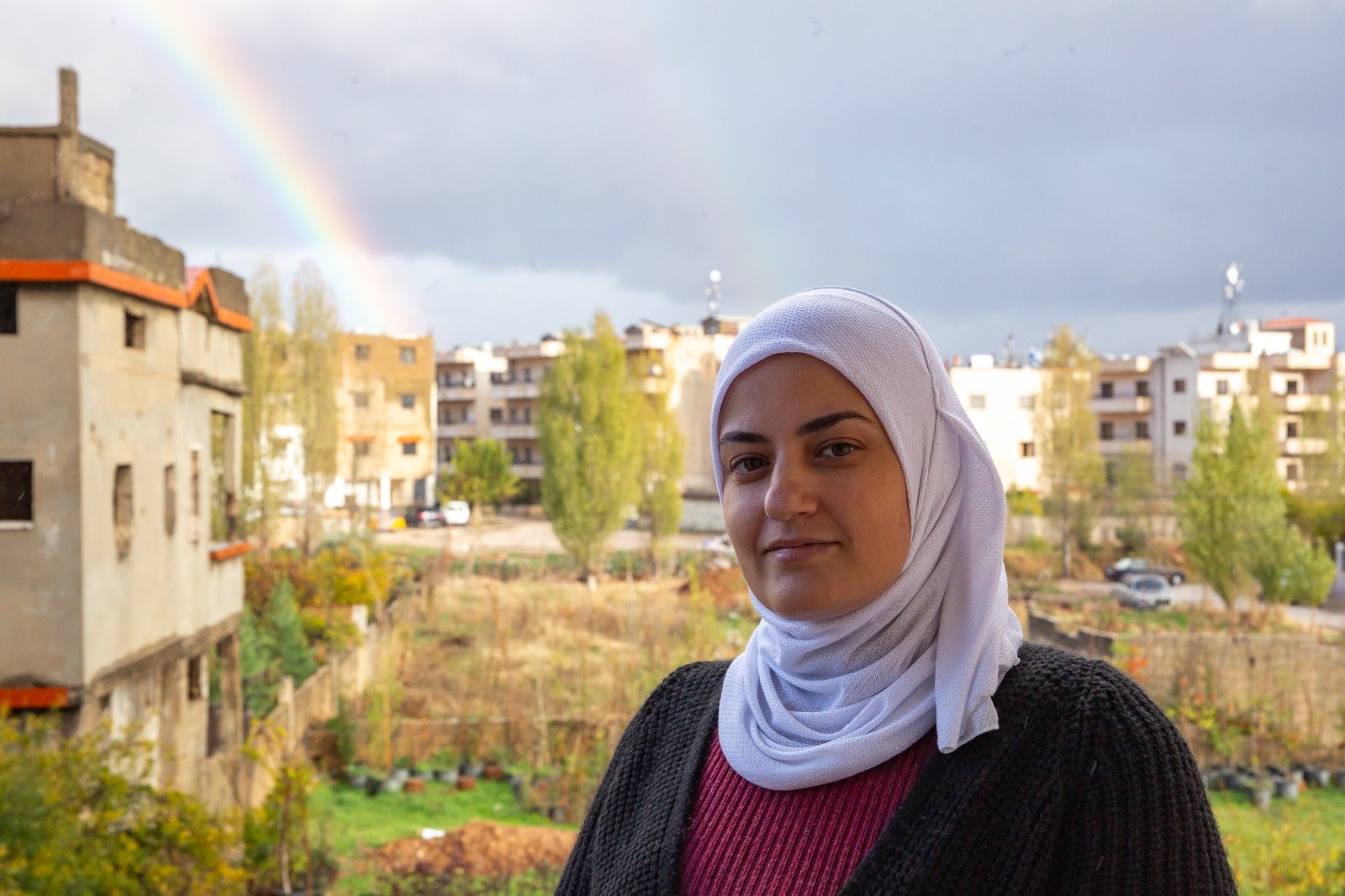In the words of Bayan Hallak: “The impact of my intervention was profound, transforming a volatile household into a haven of safety”
Date:

Gender-based violence (GBV) remains a pervasive problem in Lebanon, impacting women and girls across various domains. Despite legal frameworks, cultural norms contribute to a culture of silence, making it challenging for survivors to seek help. In 2023, UN Women, funded by the Government of Australia, partnered with the local NGO KAFA (Enough) Violence & Exploitation to establish a women’s protection committee aimed at raising awareness about GBV, the protection from sexual exploitation and abuse (PSEA) and accountability to affected populations (AAP).
“Growing up in a patriarchal society, I navigated societal expectations that sought to limit my aspirations. Despite earning degrees in Law and ICT, the journey was fraught with challenges. The very decision to pursue education as a woman sparked skepticism, with voices questioning the relevance of education after marriage. I would often hear people tell me: ‘Why are you still studying? What do you need it for? You already got married.’
People would also tell me that being a lawyer is not a ‘woman’s job’ because lawyers have to go to police stations and prisons and get their ‘hands dirty’. However, my father often stood against our community and encouraged me to pursue the profession I wanted. His unwavering support became my anchor, enabling me to challenge norms and defy the notion that certain professions are unsuitable for women.
At the age of 13, I frequently heard loud screams and the sound of breaking objects emanating from my neighbours’ residence. One day, while on my way to school, I noticed the daughter with a visibly red and injured face. Despite not knowing her well, I inquired about her well-being. She initially concealed her face, offering no response, and walked away. Over time, we developed a closer connection, and I persistently asked about any troubles she might be facing. It was during one of these conversations that she revealed that her brother had struck her with a shoe, leaving a distinct imprint on her cheek. The motive behind this act of violence? She refused to marry her cousin.
Motivated by personal experiences and a burning desire for change, I embarked on a mission to empower others. I joined UN Women and Kafa’s committee to fight the silent epidemic of gender-based violence.
Through my training sessions in Bekaa, and specifically in Barelias, a mother sought my help to deter her son from harming his sisters. She requested assistance to scare her son by threatening to report him to Kafa. The mother became a catalyst for change, and as her son began to recognize the folly of his ways, he started leaving the house whenever he felt angry so that he would not harm his sisters.
Another mother contemplating early marriage for her daughter was swayed by my counsel. The impact of my intervention was profound, transforming a volatile household into a haven of safety.
During our sessions, women often express astonishment at their lack of awareness regarding violence. The mere definition of abuse prompts reflections on their own experiences, and they discover the strength to defy societal expectations. Through my sessions and outreach efforts, I have managed to reach at least 280 women and girls.
Looking ahead, my commitment to the cause remains unwavering. Beyond awareness, I aspire to create initiatives promoting financial independence for women. Recognizing that economic autonomy is a powerful shield against abuse, my future plans align with initiatives that empower women to chart their own destinies. I truly believe that every session, every conversation and every intervention stands as a testament to the transformative power of education, awareness and advocacy.”
UN Women and Kafa established two women’s protection committees, supported by generous funding from the Government of Australia. Comprising 10 community members from Bekaa and 10 from the Beirut region, these committees have the central goal of raising awareness about gender-based violence within their respective communities. Through extensive training on GBV, PSEA, AAP and women’s empowerment, the women’s committee in Bekaa and Beirut have been able to reach over 1,600 women and girls through awareness sessions.